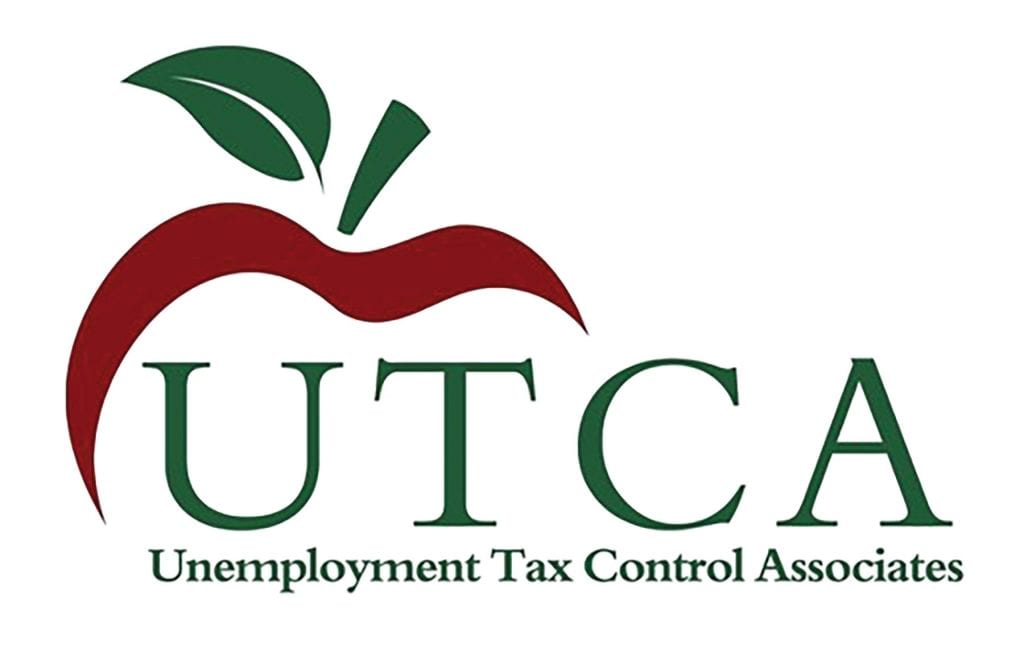
Suzanne Murphy Leads UTCA to Continued Growth, Influence
Shoebox Greetings

Suzanne Murphy has put UTCA on a path to continued growth and influence — in this region and well beyond.
As she looked back on 30 years in business — and a very different kind of business, to be sure — Suzanne Murphy retold a story she’s recounted probably hundreds of times.
It concerns the conversation one of her clients had with the firm it was leaving to start doing business with Murphy’s Unemployment Tax Control Associates (UTCA) — as related by that client.
“He said, ‘I just got off the phone with our current vendor, and I told them I was moving my business to your company — and they laughed and said, ‘that’s a little shoebox out in Western Mass.,’’” Murphy recalled, adding that the implication was clear — that those in this region are not on the cutting edge in this realm. “He then said, ‘I was sure to tell them that this was one highly organized, very effective shoebox, and that’s where I was taking my business. And I also told them to think about those kinds of comments and how they land out in Western Mass.’”
Murphy said those remarks, which date back to the early days of her venture, and especially those referring to the size of her company and its mailing address, have stuck with her all these years, especially as she continues to add clients — and employees — from across the country.
Indeed, no one is laughing at this not-so-little shoebox anymore — although UTCA is still rather small when compared to some of the giants that also handle unemployment matters for businesses, although they do it as one of myriad services rather than focusing energies on that one area (we’ll get to all that later). In fact, UTCA has emerged as a regional and national leader in this realm.
“From all we’ve heard, the governor and the Legislature have no intention of revisiting this matter, and I think that’s very shortsighted.”
And most of the reason why is its founder, a thoughtful, enterprising entrepreneur who sat down with BusinessWest recently to talk about everything from her business and how it has evolved to the future of work and where it’s conducted in the wake of the pandemic, to the state’s recent decision not to use some of the $5 billion in federal stimulus money coming its way to help businesses absorb the massive unemployment-insurance costs facing them.
That controversy over the so-called solvency assessment has certainly put Murphy and her company’s work under a much brighter light. Indeed, while she’s been very successful at what she does, companies don’t need UTCA’s services until they need them — and over the years, it has operated in relative anonymity, if that’s the right word.
But the recent debate over the solvency assessment and state’s decision to not use stimulus funds, and instead stretch the payments out over the next 20 years, has brought Murphy and her firm to settings ranging from an East of the River Five Town Chamber of Commerce (ERC5) webinar to BusinessWest’s podcast.
It’s a subject she’s passionate about, and she believes the state’s decision will have some long-term ramifications.
“I think it’s ill-advised, and I think it will put the state at a competitive disadvantage,” she said, noting that many bordering states and others as well are friendlier from an unemployment-tax standpoint. “From all we’ve heard, the governor and the Legislature have no intention of revisiting this matter, and I think that’s very shortsighted.”
As for where people work, Murphy said the pandemic has shown her — and it should have shown every employer — that workers don’t need to be in the office to be effective, and they don’t even have to be in Massachusetts, which is good for employers, but potentially not so good for the Bay State, especially given its recent stance on unemployment costs and the manner in which other states have become much more business-friendly in that regard.
Taxing Situation
As she talked with BusinessWest, Murphy was preparing for what she expects to be — and really hopes will be — the last move her company makes. Or, at least, the last move she will make.
Indeed, as she walked amid furniture and boxes with sticky notes on them to tell the movers where to put them, she said she was trading space at 1350 Main St. in downtown Springfield for a building she purchased in West Springfield, one more suited to the hybrid/remote work model the company has adopted, and one that will even let employees work outdoors of they so choose.

“We want to make it a modern, fun place to work,” she explained, adding that the company should be moved in by mid-July.
The move is the latest of several, an indication of how UTCA has grown over the years, not only in size, but in stature within the realm of unemployment and, as the name on the letterhead says, unemployment tax control.
Murphy was handling such work for a larger firm, one that is no longer in business, when she decided it was time to go into business for herself — with a different business model.
That model was to take a handful of clients that were encouraging her to strike out on her own and start a business in Western Mass. and launch a venture focused entirely on helping companies manage and reduce their unemployment costs.
“I was toying with the idea of doing something, but I was still unclear on whether this was the path I wanted to take,” she recalled, adding that she credits those clients with being persistent and convincing her to take the plunge.
Starting with just herself and a single employee, she he took that small but reliable block of clients and continually built upon that base, primarily by differentiating herself from the larger competitors — “huge data warehouses,” as she described them — such as Equifax and Experian, for which unemployment services are part of a one-stop-shop model and, typically, a loss leader.
The differentiation, in addition to focusing solely on unemployment-tax matters, comes in the company’s proactive, rather than reactive, approach to serving clients, said Murphy, adding that, in this industry, it is generally understood that, in order to protect an organization from unwarranted claim costs, the most effective measures an employer can implement must occur before the employee has separated.
“ I feel the market needs a reliable, responsible, client-focused broker in the industry, and I’m going to keep slugging as long as I can.”
Elaborating, she said UTCA helps companies identify and target cost drivers, and then works with them to develop solutions for reducing them, an MO that has resonated with a wide range of clients.
The firm now boasts 20 employees, including Murphy’s daughter, Meghan Avery, senior vice president; and son, Evan Murphy, director of client development, as well as a number of independent contractors who handle hearings in a number of different states.
Getting back to those giants in the industry, Murphy said trying to compete with them, at least with regard to price, is extremely difficult, and this is why so many smaller players have not been able to stay in business over the years. She’s determined not to join the growing list of casualties.
“I would not do that my clients; I feel the market needs a reliable, responsible, client-focused broker in the industry, and I’m going to keep slugging as long as I can,” she said, adding that she laments the loss of many smaller players.
“I’d welcome more privately held, small or medium-sized competitors from the perspective that they be expected to be more focused on results, unable to confuse the marketplace with a very diluted spectrum of services or a blitz of advertising,” she explained. “It’s said that iron sharpens iron, and I think there’s a lot of truth to that. There’s plenty of business to go around and no shortage of complexity or issues employers must contend with in our space.”
Market Forces
There has certainly been enough business in recent months, as companies of all sizes have been forced to contend with the huge bill that has come due in the wake of huge numbers of people going on unemployment due to the pandemic and the deep toll it took on businesses across virtually every sector.
Indeed, Murphy described that period as by far the busiest of her career, dominated by helping clients handle both legitimate and fraudulent claims — and there were large numbers of both.
And then came what most would describe as a controversy regarding the solvency assessment and the decision of the governor and the Legislature about how to address it.
From her position on the front lines of this battle, Murphy heard directly from a number of small and mid-sized business owners facing huge assessments, often through no fault of their own, at a time when many were still struggling to fully dig their way out from the pandemic. Thus, she became highly visible, and highly vocal, in efforts to convince the Legislature to use money from the American Rescue Plan to offset those costs to businesses. Despite those efforts, Gov. Charlie Baker and the Legislature have instead opted to spread out the payments — an estimated $7 billion in total — over 20 years, a decision that disappoints her on many levels.
“There need to be discussions about tax equity and tax justice. The larger corporations are not going to feel this as much. But the smaller and medium-sized businesses are going to be far more disadvantaged; it’s going to impact them detrimentally. There’s no upside to how this was managed.”
“The governor and the Legislature believe the fix has been provided and nothing more needs to be done,” she said. “And that could not be further from the sentiments that we are experiencing on the ground, from our clients, and even those who aren’t clients — people who have reached out to us because they know of our role on this issue.
“There need to be discussions about tax equity and tax justice,” she went on. “The larger corporations are not going to feel this as much. But the smaller and medium-sized businesses are going to be far more disadvantaged; it’s going to impact them detrimentally. There’s no upside to how this was managed.”
As noted earlier, this controversy has put UTCA, and especially Murphy, under a brighter spotlight. For her, it’s a different role, one she’s accepted enthusiastically because of what’s at stake and because of the way her clients — and, as she said, non-clients, too — are now in the line of fire.
“It has morphed into more of an activist role, especially with our work with the ERC5,” she noted, adding that such involvement is important in that it helps bring the perspective of the small-business owner — often lost on those in power, in her view — into the forefront.
But the pandemic has done more than bring unprecedented levels of business — and visibility — to the company. Indeed, Murphy said it has also provided lessons in how work can be done, and where.
Elaborating, she said her company, like many others, has adapted a hybrid/remote model of work, with many employees working from home. But because of the technology available, home doesn’t have to be in the 413, or even in Massachusetts. And as employers look at whom they might hire and where they live, unemployment-tax rates and policies will likely play an increasingly significant factor in those decisions.
“Massachusetts will have to compete with every other state now — and there are 21 other states that have chosen to use federal stimulus funds to offset their losses on their unemployment trust funds,” she explained. “Massachusetts has used zero dollars for that purpose, and has chosen to strap employers with a 20-year assessment.
“We have two positions to fill,” she went on. “And now, we can interview and hire people from Michigan or Texas or California, and those will be the jurisdictional states for unemployment. As more employers with remote workforces become aware of this, they may be more prone to hire people from states where the unemployment-tax burden is much less.”
This changing playing field allows UTCA, and all companies, for that matter, to cast a wider net, said Murphy, and attract talent that was formerly out of reach because of geography.
“We used to talk about getting people from the eastern part of the state to relocate to Western Mass., and that was a difficult task,” she told BusinessWest. “All that has shifted; we can now focus on recruiting directly in the market where our competitor is — or wherever we want to be. We can do our homework and attract people within our industry who have niche experience and knowledge, or we can attract others who are in a demographic we want to focus on to make our company more diverse, as well as productive. And I would be surprised if businesses do not see the opportunity there to have a very robust workforce that will give them a competitive advantage.
Doing her homework and staying on the cutting edge of trends and new developments in business has enabled Murphy to take that ‘small shoebox’ referenced by that jilted competitor all those years ago and turn it into a much bigger shoebox — and, more importantly, one of the region’s more intriguing business success stories.
George O’Brien can be reached at [email protected]




